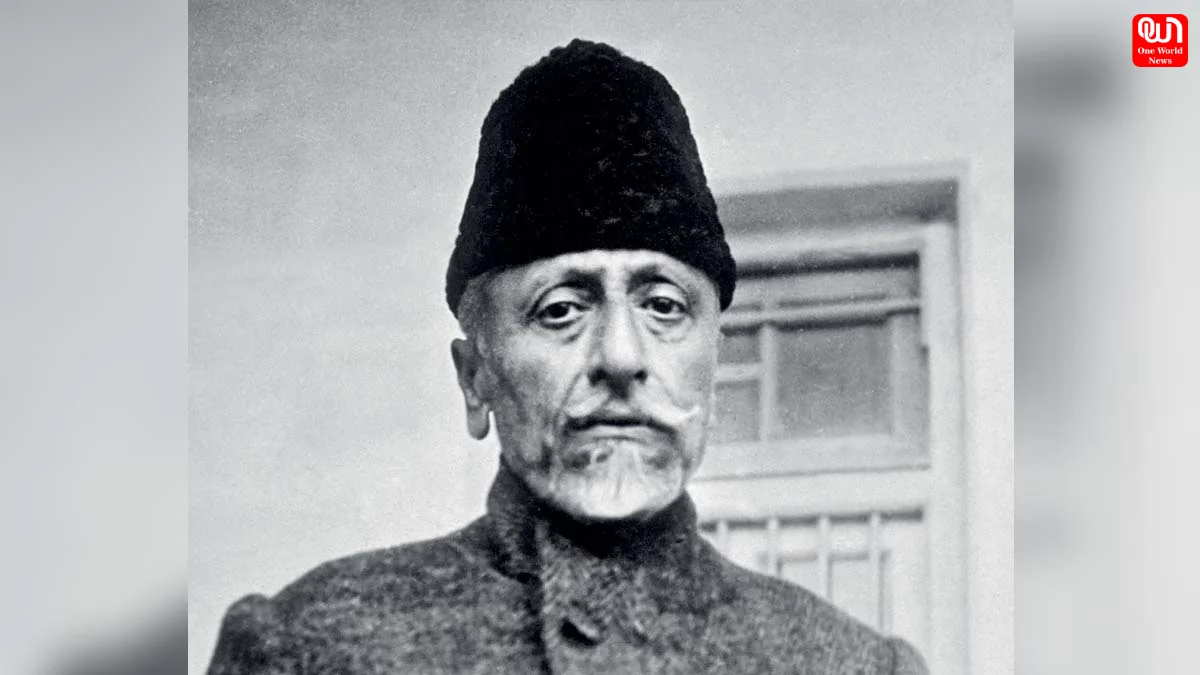Maulana Abul Kalam Azad Whose Death Anniversary is Today, 22 February
Maulana Abul Kalam Azad: A Visionary Leader Who Shaped India's Educational and National Identity
The Architect of Modern Indian Education and a Pioneer of Freedom
February 22 commemorates the death anniversary of Maulana Abul Kalam Azad, a prominent leader in India’s fight for Independence. An esteemed intellectual, author, and prominent figure in the Indian National Congress, he significantly influenced the country’s future. In addition to his political achievements, Azad advocated for education.
As the inaugural education minister of independent India ( 15 August 1947-2 February 1958), he dedicated himself to advancing research in eastern literature and education.
He was crucial in forming the University Grants Commission (UGC) and had a significant part in creating the first Indian Institute of Technology (IIT). His foresight also established the basis for India’s contemporary education framework.
The respected leader died on February 22, 1958, leaving an enduring legacy.
Fascinating Information About Maulana Abul Kalam Azad
- Abul Kalam Azad’s complete name is Sayyid Ghulam Muhiyuddin Ahmed bin Khairuddin Al-Hussaini Azad.
- Although he lacked formal education, Abul Kalam Azad was remarkably knowledgeable. At the age of 15, he was instructing learners double his age. He exhibited an exceptional mastery of several languages, such as Arabic, English, Urdu, Hindi, and Bengali.
- Although he was educated in a conventional Islamic manner by his father, he covertly studies English, challenging the societal norms of that era.
- Abul Kalam Azad was not only a leader; he was also a courageous journalist. In 1912, he initiated Al-Hilal, a weekly Urdu newspaper in what was then Calcutta, which significantly motivated the public.
- His writings consist of India Wins Freedom, Ghubar-e-Khatir, Tazkirah, Tarjumanul Quran, and Ghulabe Khatir.
- Jawaharlal Nehru viewed him as ‘Mir-i-Karawan’ (the caravan leader), characterizing him as “an exceptionally brave and chivalrous man, a polished product of civilization.”
READ MORE : Sourav Ganguly Confirms Rajkummar Rao for His Biopic
Motivational Sayings By Abul Kalam Azad
- “We must never lose sight of the fact that it is the inherent right of every person to obtain at least fundamental education, which is essential for fulfilling their responsibilities as a citizen.”
- “Someone who remains unmoved by music is mentally unstable and excessive; they are distant from spirituality and less aware than animals, as all beings respond to harmonious sounds.”
- “Educators ought to foster the qualities of inquiry, creativity, entrepreneurial skills, and moral leadership in students while serving as their role models.”
- “Science remains unbiased.” Its findings can be utilized both to cure and to harm. The way science is utilized to establish a new paradise on earth or to annihilate the world in a widespread blaze hinges on the user’s perspective and mindset.
- “Any national education program cannot be deemed suitable if it fails to fully address the education and progress of women, who make up half of society.”
- “Art is the cultivation of feelings and therefore constitutes a vital component in any framework of authentic national education.” Education, whether at the high school or collegiate level, cannot be considered complete if it does not develop our abilities to appreciate beauty.
Read More: Explore World Thinking Day Activities and Methods to Commemorate in your Area and Nation
The influence of Maulana Azad on India is beyond measure. His commitment to learning, wisdom, and liberty remains a source of inspiration for countless generations.
The contributions of Maulana Abul kalam Azad significantly aided India’s growth and freedom movement after independence. As the inaugural minister of education in the country, he advocated for inclusive, secular education while emphasizing the importance of knowledge for progress.
His significant achievements encompass serving as President of the Indian national Congress and contributing notably to the Constituent Assembly’s efforts on the Indian Constitution. Azad was honored with the Bharat Ratna, India’s highest civilian award, in 1992, after his remarkable contributions to the nation. The day he dies was February 22, 1958. Even after he passed away, his impact on secularism, education, and his steadfast efforts for a harmonious and united India continue.
We’re now on WhatsApp. Click to join.
Like this post?
Register at One World News to never miss out on videos, celeb interviews, and best reads.








